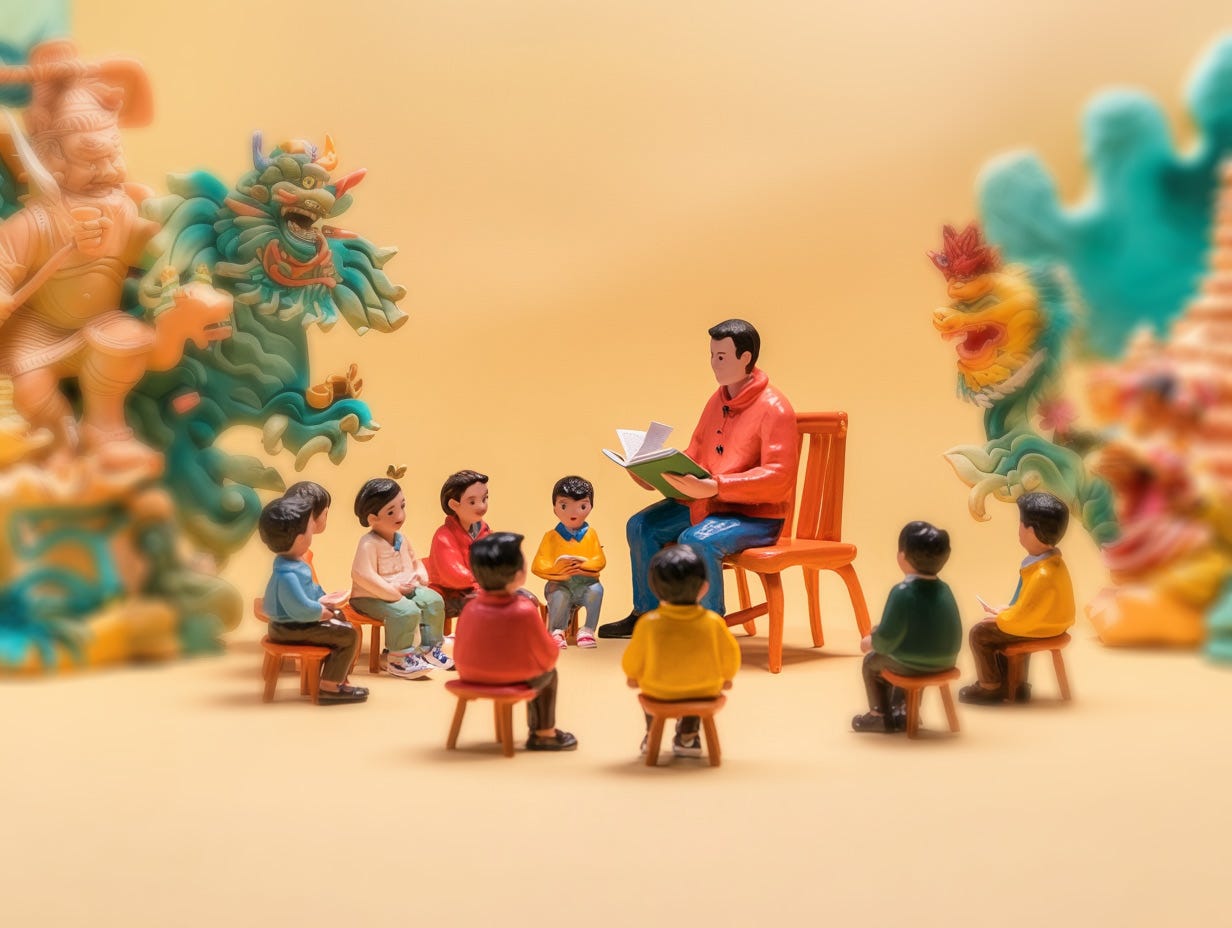Why We Love Being Lied To
The Psychology of Certainty and Myth
I believed that if I was kind, worked hard, and stayed positive, life would reward me. That’s how I was raised, and it’s what many of us are told.
Little truths wrapped in bigger stories are meant to give life structure.
“You can be anything you want to be.”
“You’re special.”
“If you’re a good person, good things will happen.”
These aren't malicious lies. They're myths passed down from parents, teachers, and friends. They're comforting, hopeful, and necessary, even. They are stories told to make an unpredictable world feel like it has rules.
But over time, the shine wears off. “You can be anything” becomes the never-ending chase for a career upgrade. “You’re special” turns into endless self-help mantras. And “If you're a good person...” starts to crack under the weight of real-life unfairness.
And still, we cling to them. Because the truth is messy. The truth doesn’t offer closure. It’s contradictory, uncomfortable, full of jagged edges. A lie, on the other hand, wraps everything in a neat little bow. It gives us a way to keep going. Take, for example, the belief that love conquers all. It’s simple, cinematic, and easy to hold onto when everything feels like it’s falling apart. The truth? Love isn’t always enough. People change and grow apart. Relationships break. Not everything can be saved.
But we prefer the lie. Not because we’re naive but because we’re human.
Our brains are wired for stories. They're also built to avoid uncertainty. Ambiguity makes us uneasy. There's even a term for it: ambiguity aversion. When faced with the unknown, we tend to choose the path that feels more predictable, even if it's illogical and doesn't make sense.
There’s a study that sticks with me that illustrates this. There are two urns. Urn A has 50 red balls and 50 black. Urn B has 100 balls, but the red-to-black ratio is unknown. If you pick a red ball, you win $100. So, which do you choose?
Most choose Urn A. The one with the clear odds. Even though Urn B might have better chances. Why? People don’t like guessing. The discomfort of “not knowing” outweighs the possibility of something better.
That’s how most of us approach life. Uncertainty feels like danger. Certainty—even if it's a lie—feels like safety.
This wiring helped our ancestors survive. Imagine you're alone in the woods, and you hear some rustling. Is it the wind? Or something worse? Your brain doesn’t wait around to find out. It assumes danger and reacts fast. That instinct kept our ancestors alive. Today, it makes us susceptible to quick and simple answers like the ones we get from conspiracy theories, political narratives that point to a clear villain, and religious stories that explain why we’re here. Anything that gives us security in shorthand.
We're wired to create meaning fast, even when it's wrong because being wrong feels better than feeling lost, or out of control. Or, in the case of our ancestors, being wrong is better than being dead.
We stay in bad relationships because we want to believe they’re “meant to be.” We knock on wood or wear the same shirt to “help” our team win. We trust influencers who “just know” the truth, even when there’s no evidence. We believe in things not because they’re verifiable but because they make us feel in control.
And none of this means we’re broken. It means we’re trying to survive.
Narrative is our anchor. It gives us a place to stand. Even when it’s fiction. Even when it’s dangerous. Even when it slowly pulls us away from reality. This is why lies win us over.
It’s why myths persist. It’s why we tell ourselves stories, over and over, to soften the sharp edges of life's chaos. And maybe it’s why we’re so easily manipulated in the digital age, where stories are optimized, curated, and sold to us in endless scrolls. Not because they’re true but because they scratch that ancient itch: to feel protected, to feel right, to feel like we understand what’s happening.
It’s the same old comforts wrapped in new packaging. In the age of digital connection, we're not just passively lied to—we're encouraged to lie to ourselves. About how we feel. About what we believe. About who we are.
Because the truth? It doesn’t promise closure. It doesn't promise justice. It doesn’t promise that things will work out. It just is. And sometimes, that’s too terrifying.
So we reach for stories instead. Stories that hold us. Comfort us. That tell us we’re okay. That promise, or justify the reasons behind our pain.
Maybe we don’t love being lied to. Maybe we just can’t bear the weight of existence when our myths collapse.
I hate paywalls. They kill curiosity and reward clickbait. That’s why the core content here will always be free.
But this takes time, thought, and energy. If it helps you see the world differently, consider supporting it by buying me a coffee or becoming a paid subscriber for exclusive content, audio versions of each essay, and deeper dives.
Thanks for being here. Stay Curious. Question Everything.
–Luis
🔍 Further reading:
The Ellsberg Paradox—Risk, Ambiguity, and the Savage Axioms
Wikipedia entry about risk and ambiguity aversion. | READ IT HERE



